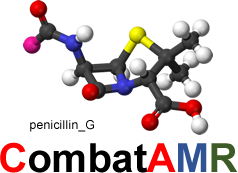
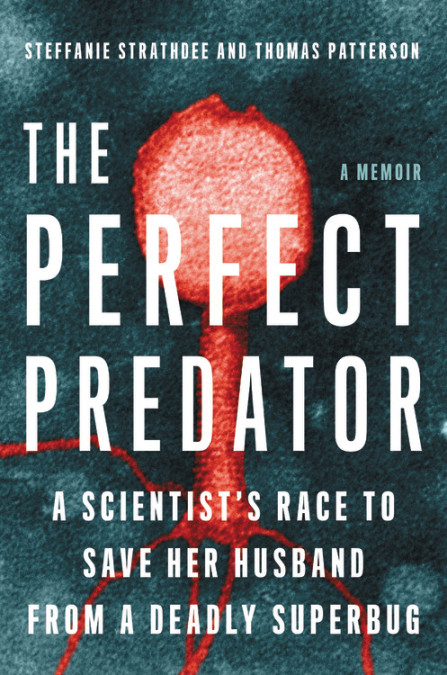
>The Perfect Predator  Latest Book
Latest Book
https://www.amazon.co.uk/Perfect-Predator-Scientists-Husband-Superbug-ebook
Steffanie A. Strathdee and Thomas Patterson. Epidemiologist Steffanie Strathdee and her husband, psychologist Tom Patterson, were vacationing in Egypt when Tom came down with a stomach bug. What seemed like a case of food poisoning quickly turned to a critical fight for his life against one of the most dangerous, antibiotic- resistant bacteria in the world. Steffanie combed through research old and new and came across phage therapy, treatment that had fallen out of favor 100 years ago after antibiotics became mainstream. The right phage (virus), aka “the perfect predator,” can kill even the most lethal bacteria. She appealed to phage researchers all over the world for help to save Tom. In doing so the overlooked phage therapy is again attracting the attention of scientists seeking answers to the increasing and deadly antimicrobial resistance - AMR.
For more background on bacteriophages, visit PHAGE BOOK LIBRARY
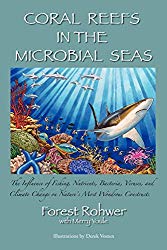
>Coral Reefs in the Microbial Seas
https://www.amazon.co.uk/Coral-Reefs-Microbial-Forest-Rohwer
Pub. June 2010. Forest Rohwer and Merry Youle. For millennia, coral reefs have flourished as one of the planet's most magnificent natural wonders. As Earth's most biodiverse ecosystem-surpassing even the rainforests-they are home to a cooperative network ranging from immense fish to sunlight-capturing algae to invisible microbes. Just how critical the microbes in particular are for coral reef health is finally understood thanks to recent discoveries. Coral Reefs in the Microbial Seas is the first book to unveil the complete story of how these relationships uphold coral reef health and what impact human activity has on this delicate balance.
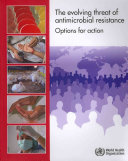
>The evolving threat of antimicrobial resistance - Options for action
https://books.google.co.uk/books/about/The_Evolving_Threat_of_Antimicrob...
The book examines the experiences with interventions which address the growing threat of antimicrobial resistance, describes the lessons learnt along the way and highlights the gaps still remaining. It draws attention to areas where knowledge is lacking and where urgent action is still needed. While much of what is summarized in this publication is well known to the scientific community, yet awareness at the political level is essential, but often lacking. A specific objective is therefore to encourage policy-makers and the global community to commit to intensified action against AMR. To order a hard copy of the book please contact bookorders [at] who.int
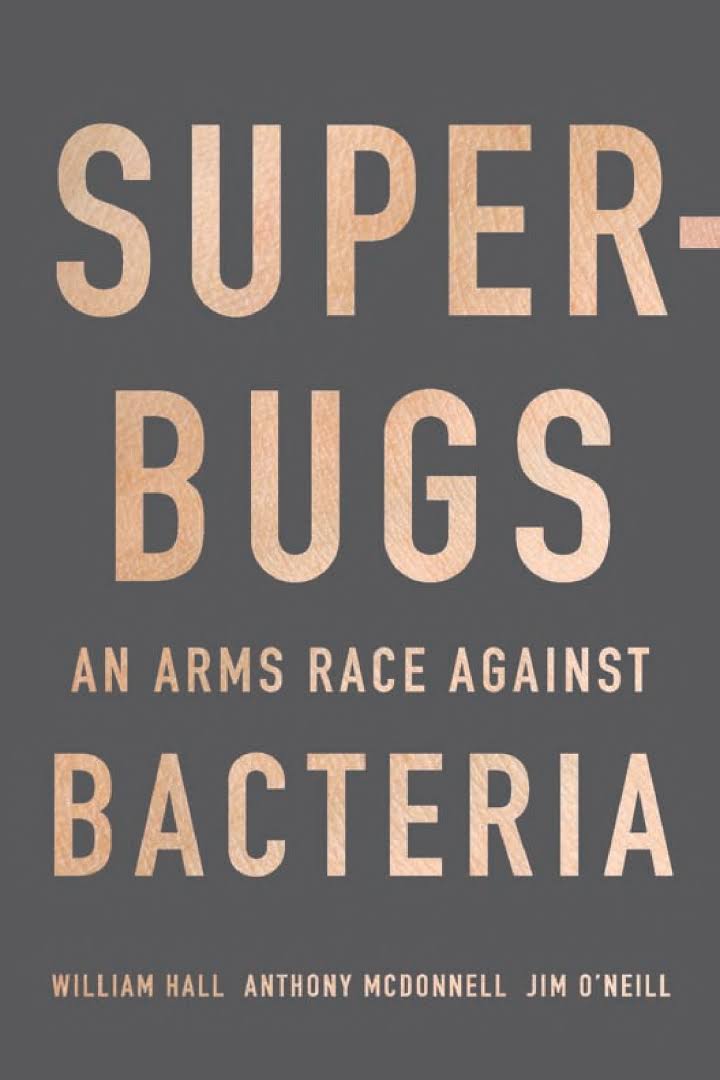
>SUPERBUGS: An Arms Race against Bacteria.
www.hup.harvard.edu/catalog.php?isbn=9780674975989
Following from their work on the Review on Antimicrobial Resistance, William Hall, Anthony McDonnell, and Jim O'Neill outline the major systematic failures that have led to this growing crisis. They also provide a set of solutions to tackle these global issues that governments, industry, and public health specialists can adopt.In addition to personal behavioral modifications, such as better handwashing regimens, Superbugs argues for mounting an offense against this threat through agricultural policy changes, an industrial research stimulus, and other broad-scale economic and social incentives.
Publisher: Harvard University Press ISBN: 9780674975989
>The Microbe Hunters:
PDF: https://laurieximenez.files.wordpress.com/2016/03/2-microbe-hunters-paul...
In this classic bestseller, Paul de Kruif dramatizes the pioneering bacteriological work of scientists, doctors and medical technicians such as Leeuwenhoek, Spallanzani, Koch, Pasteur, Reed, and Ehrlich. Paul de Kruif (1890-1971), was a bacteriologist and pathologist and a prolific author on the subject of medical science. He taught for many years at the University of Michigan.
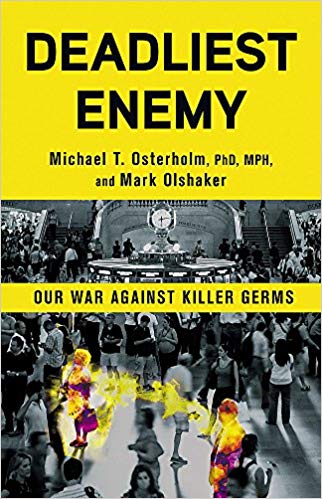
>Deadliest Enemy: Our War Against Killer Germs
https://www.amazon.com/Deadliest-Enemy-Against-Killer-Germs/dp/031634369...
2017 by Michael T. Osterholm and Mark Olshaker. Little, Brown and Company, New York.
We are facing an overwhelming army of deadly, invisible enemies. We need a plan -- before it's too late.In today's world, it's easier than ever to move people, animals, and materials around the planet, but the same advances that make modern infrastructure so efficient have made epidemics and even pandemics nearly inevitable. And as outbreaks of Ebola, MERS, yellow fever, and Zika have demonstrated, we are woefully underprepared to deal with the fallout. So what can -- and must -- we do in order to protect ourselves from mankind's deadliest enemy? Deadliest Enemy explores the resources and programs we need to develop if we are to keep ourselves safe from infectious disease. The authors show how we could wake up to a reality in which many antibiotics no longer cure, bioterror is a certainty, and the threat of a disastrous influenza pandemic looms ever larger. Only by understanding the challenges we face can we prevent the unthinkable from becoming the inevitable.
> Small Wonders: How Microbes Rule our World
https://scribepublications.com.au/books-authors/books/small-wonders
Published in the US as The Invisible Kingdom: from the tips of our fingers to the tops of our trash, inside the curious world of microbes by Idan ben-Barak. Taking us on a fantastic voyage into the infinitesimal world of microbiology, in The Invisible Kingdom, he introduces us to the amazing lives and workings of genes, proteins, bacteria, and viruses, and the ways in which they interact to shape life on Earth. Exploring everything from radioactive waste and insect sex-change operations to the inner workings of antibiotics. He won the 2010 American Association for the Advancement of Science Prize for Excellence in Science Books. Back home in Australia it was shortlisted for the Science Writer's Award in the 2009 Queensland Premier's Literary Awards.
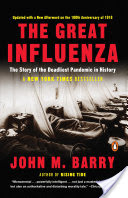
>The Great Influenza
https://books.google.co.uk/books/about/The_Great_Influenza.html?id=BYsW6...
The epic story of the deadliest plague in history by John M. Barry. H5N1 (bird flu virus) is now; H1N1 was 1918. ......"the virus that created its own killing fields." J.M. Barry
John M. Barry is a prize-winning and New York Times best-selling author whose books have won multiple awards. The National Academies of Science named his 2004 book The Great Influenza: The story of the deadliest pandemic in history, a study of the 1918 pandemic, the year’s outstanding book on science or medicine. In 2004, the National Academies of Science asked him to give the keynote speech at its first international scientific meeting on pandemic influenza, he was the only non-scientist on a federal government Infectious Disease Board of Experts, and he was a member of the original team which developed plans for mitigating a pandemic by using "non-pharmaceutical interventions"-- i.e., public health measures to take before a vaccine becomes available. Both the Bush and Obama administrations have sought his advice on influenza preparedness and response, and he continues his activity in this area.
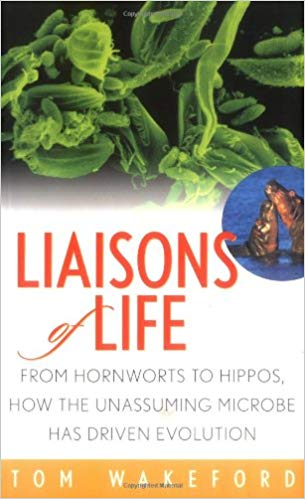
>Liaisons of Life: From Hornworts to Hippos How the unassuming Microbe has driven Evolution.
https://www.amazon.com/Liaisons-Life-Hornworts-Unassuming-Evolution/dp/0...
Award-winning science writer and biologist, Tom Wakeford, describes how microbes –by forming mutually beneficial relationships with nearly every creature, be it alga with animals or zooplankton with zebrafish, have in fact been innovative players in the evolutionary process. He presents a fascinating exploration of symbiosis at the microscopic level and its radical extension of Darwinism.
>Spillover: Animal Infections and the Next Human Pandemic by David Quammen.
https://www.amazon.co.uk/Spillover-Animal-Infections-Human-Pandemic/dp/0...
The emergence of strange new diseases is a frightening problem that seems to be getting worse. In this age of speedy travel, it threatens a worldwide pandemic. News reports of Ebola, SARS, AIDS, and something called Hendra killing horses and people in Australia overlook the fact that such phenomena are part of a single pattern. The microbes that transmit these diseases share one thing: they originate in wild animals and pass to humans by a process called spillover. David Quammen tracks this subject around the world.
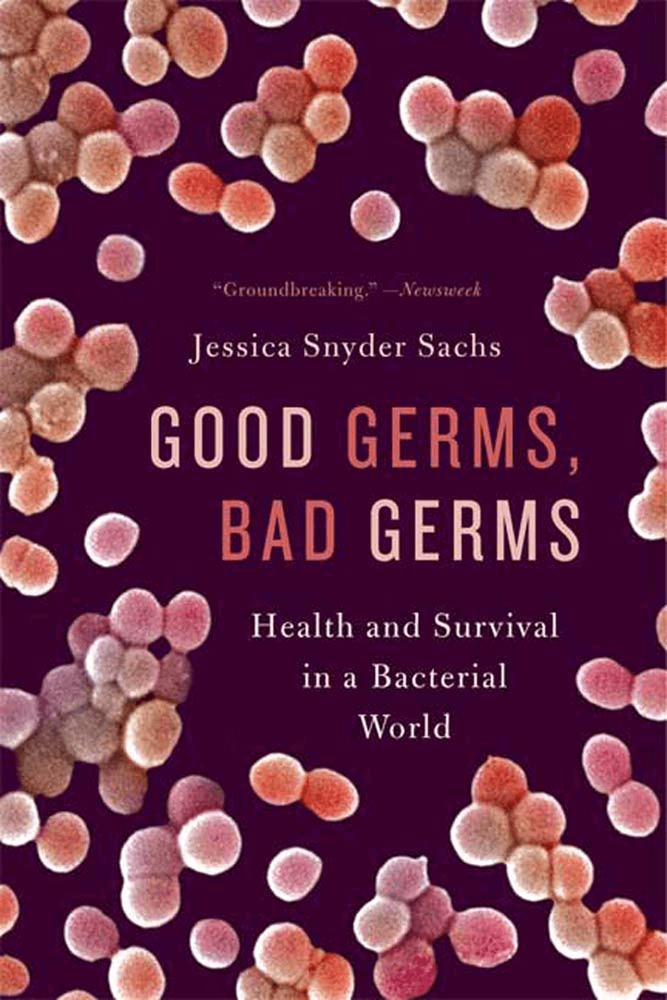
>Good Germs, Bad Germs: Making Peace with Microbes.
https://us.macmillan.com/books/9781429923293
Jessica Snyder Sachs. Hill&Wang/Farrar, Straus, and Giroux.
Public sanitation and antibiotic drugs have brought about historic increases in the human life span; they have also unintentionally produced new health crises by disrupting the intimate, age-old balance between humans and the microorganisms that inhabit our bodies and our environment. As a result, antibiotic resistance now ranks among the gravest medical problems of modern times. Good Germs, Bad Germs addresses not only this issue but also what has become known as the "hygiene hypothesis"-- an argument that links the over-sanitation of modern life to now-epidemic increases in immune and other disorders. In telling the story of what went terribly wrong in our war on germs. Jessica Snyder Sachs is a contributing editor to Popular Science and writes regularly for Discover, National Wildlife, Health, Parenting, and other national publications. Prior to becoming a full-time freelance writer in 1991, she was the managing editor of Science Digest.
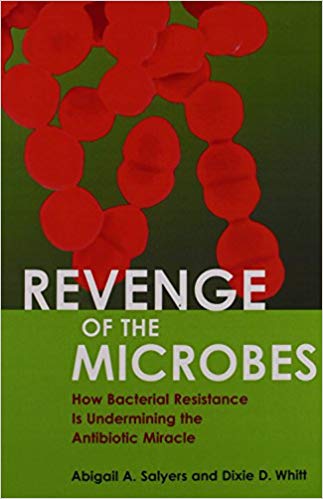
>Revenge of the Microbes: How Bacterial Resistance Is Undermining the Antibiotic Miracle
https://www.amazon.co.uk/Revenge-Microbes-Resistance-Undermining-Antibio...
Dr Abigail Salyers and Dr Dixie D Whitt explain the basics of antibacterial resistance to non-scientists, so that they will understand why one should not take penicillin for the flu, for instance, or insist upon antibacterial soaps. Since the future of antibiotics depends on millions of individuals making informed decisions about antibiotic use, this book could not be more needed. The authors do an excellent job discussing the social and economic reasons why antibiotics are used in the way they are today, even though we know that such usage will likely lead to antibiotics' early obsolescence.
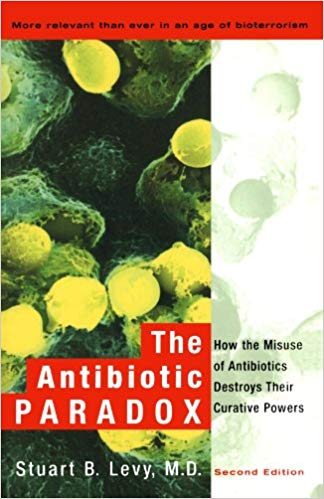
<The Antibiotic Paradox: How the Misuse of Antibiotics Destroys their Curative Powers.
https://www.amazon.com/Antibiotic-Paradox-Antibiotics-Destroys-Curative/...
In this totally revised and updated edition of the classic primer on the misuse of antibiotics, Dr Stuart Levy reveals how our cavalier and naïve attitude about the power of antibiotics can have -and already has had-dire consequences. He explains that we are currently witnessing a massive evolutionary change in bacteria. This build-up of new antibiotic-resistant bacteria in individuals and the environment, mixed with our overzealous use of antibiotic soaps and the unregulated dispensing of antibiotics worldwide, is leading us into a dangerous territory where our "miracle" drugs will no longer help.
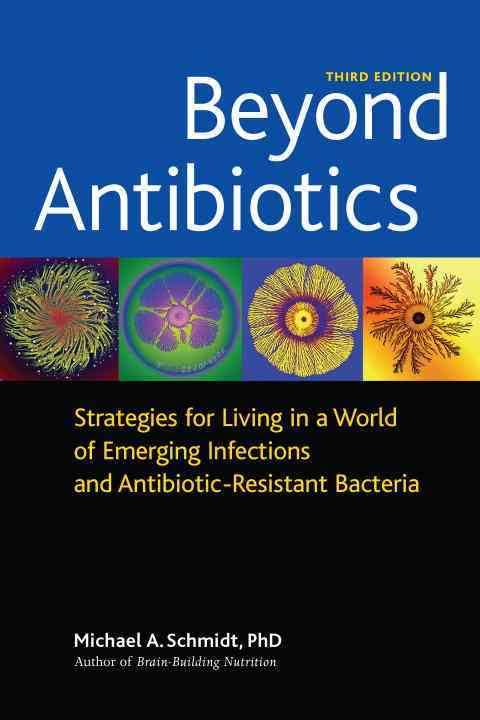
>Beyond Antibiotics: Strategies for Living in World of Emerging Infections and Antibiotic-Resistant Bacteria. North Atlantic Books.
https://www.amazon.co.uk/Beyond-Antibiotics-Strategies-Infections-Antibi...
At a time when the numbers of emerging infections and antibiotic-resistant bacteria are rising sharply, the supply of new antibiotic drugs has been steadily decreasing. In addition, many health providers have failed to consider that our bodies are cloaked in a blanket of bacteria so pervasive that the bacterial cells outnumber our “human” cells by a factor of ten. In short, we are living in a microbe’s world and cannot ignore the very real potential for untreatable serious infections. Dr Michael Schmidt proposes we focus on strengthening ourselves by thinking of our bodies as a “human-microbe hybrid.” This requires taking action to raise our defences, while preserving the integrity of the microbial elements that live on and within us. Drawing on the latest research from several scientific fields, Schmidt presents a strategy of medicine that can be used to build and balance our system of immune defence and repair. He offers a set of general recommendations that can easily be used to tailor programs to individuals seeking to support health maintenance, prevent illness, fight active acute or chronic infections, and foster faster recovery from
Infections.
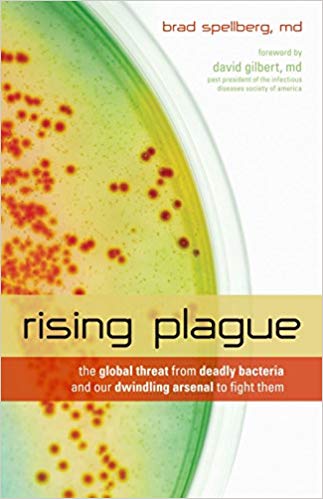
> Rising Plague: The Global Threat from Deadly bacteria and our Dwindling Arsenal to Fight Them.
https://www.amazon.com/Rising-Plague-Bacteria-Dwindling-Arsenal/dp/15910...
Antibiotic resistant microbes infect more than 2 million Americans and kill over 100,000 each year. Throughout the world, many more people are dying from these infections. Astoundingly, as antibiotic resistant infections are skyrocketing in incidence, creating a critical need for new antibiotic, research and development of new antibiotics has ground to a halt! Dr Spellberg, an infectious diseases specialist and a member of an American national task force member charged with attacking antibiotic resistant infections, tells the story of this potentially grave public health crisis. He explains the true causes of antibiotic resistance and of the virtual collapse of antibiotic research and development and advocates ways to reverse this dire trend and instead bolster the production of desperately needed new and effective antibiotics and warns against complacency induced by the decades-old assumption that some miracle drug will always be available to ensure the continuation of our "antibiotic era." If we do nothing, we run the risk of inviting a bleak future when infectious diseases will once again reign supreme.
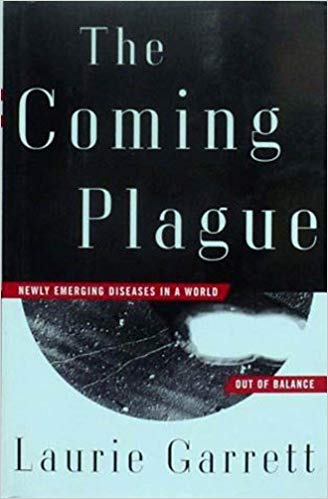
>The Coming Plague: Newly Emerging Diseases in a World Out of Balance.
https://www.amazon.com/Coming-Plague-Emerging-Diseases-Balance-ebook/dp/...
Reed Business Information, Inc.
Laurie Garrett is the only writer ever to have been awarded all three of the Big "Ps" of journalism: the Peabody, the Polk, and the Pulitzer. She writes ‘Preparedness demands understanding’ and examines the patterns lying beneath the new diseases and old resurgent ones. As the human population explodes, ecologies collapse and simplify, and disease organisms move into the gaps. As globalization continues, diseases can move from one country to another as fast as an airplane can fly. Epidemics grow when a disease outbreak is amplified--by contaminated water supplies, by shared needles, by recirculated air, by prostitution. It is within our power to control the amplifiers of disease; it's a matter of money, people, and political will.
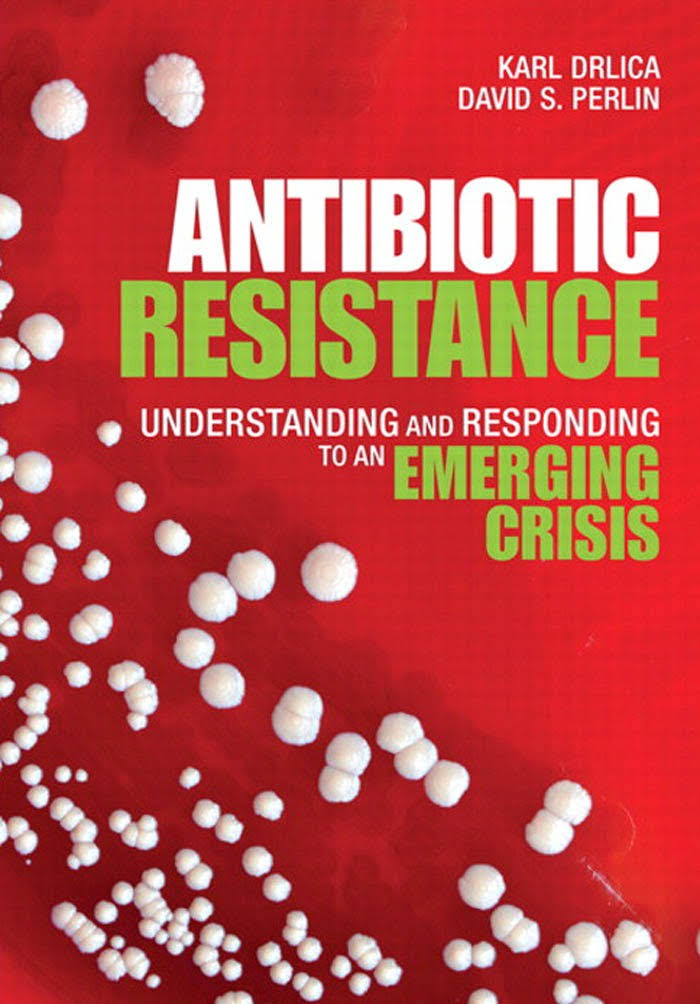
>Antibiotic Resistance: Understanding and Responding to an Emerging Crisis. FT Press Science.
https://www.amazon.co.uk/Antibiotic-Resistance-Understanding-Responding-...
Authored by two leading investigators, Karl S Drica and David S Perlin, this book presents a thorough and authoritative overview of this multifaceted field of science. Pathogenic bacteria have been evolving and spreading resistance to diverse classes of antibiotics. As a result, we risk losing our ability to control and treat infectious diseases. Understanding antibiotic resistance, therefore, is becoming increasingly essential for a broad audience of healthcare professionals, biomedical and public health researchers, students, and policymakers. The authors explain what can be done to minimize risks to public health, and to preserve and extend the effectiveness of existing and new antibiotics.
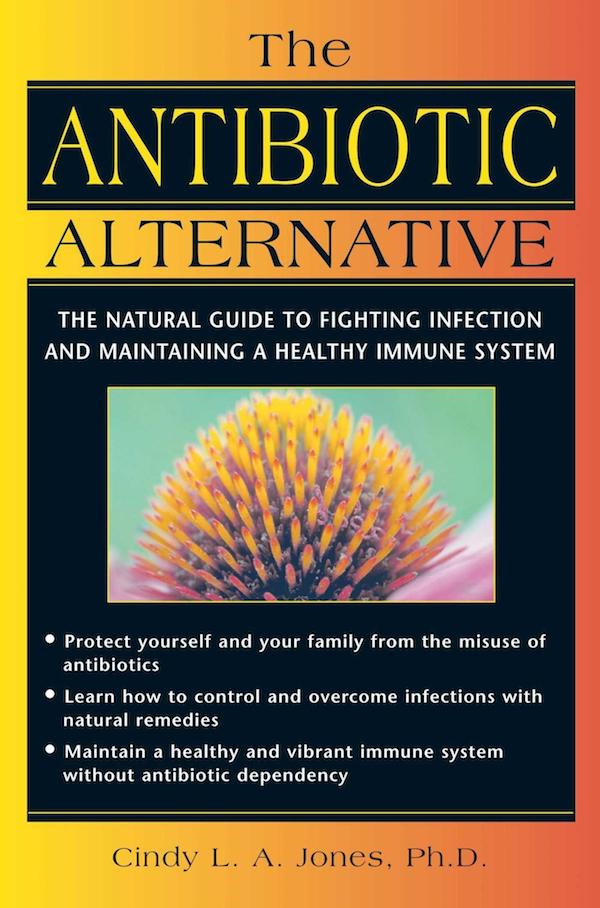
>The Antibiotic Alternative: The Natural Guide to Fighting Infection and Maintaining a Healthy Immune System. Healing Arts Press.
https://www.amazon.co.uk/Antibiotic-Alternative-Fighting-Infection-Maint...
When antibiotics were discovered they were hailed as the magic bullet that would put an end to the threat of infectious disease. But we now face an alarming increase in cases of bacterial infections that will not respond to antibiotics. Biochemist Dr Jones explains how overreliance on antibiotics is dangerous because bacteria have found ways to outsmart them, producing resistant strains that prove harder and harder to control. The use of antibiotics in agricultural feeds and widespread over-prescription of antibiotics has deepened the threat of resistant bacteria to potentially epidemic proportions. Even when appropriately prescribed, antibiotics weaken the immune system by altering the body’s natural bacterial balance. While antibiotics have their place in treating acute life-threatening conditions, The Antibiotic Alternative shows how the best defence against infectious disease is to strengthen your own immune system.
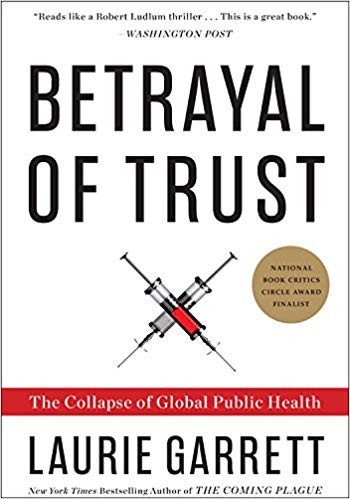
>Betrayal of Trust: The Collapse of Global Public Health
https://www.amazon.co.uk/Betrayal-Trust-Collapse-Global-Public/dp/078688...
Laurie Garrett. Reading most public health books is merely sad; reading Laurie Garrett’s ‘Betrayal of Trust’, however, is absolutely terrifying. This book is divided into five chapters, any one of which is the stuff of nightmares. All concern “the collapse of global public health,” as the subtitle reads. Garrett's tone is journalistic, even pugilistic, as she relates in each chapter another instance of public health systems gone to pot. Google Books
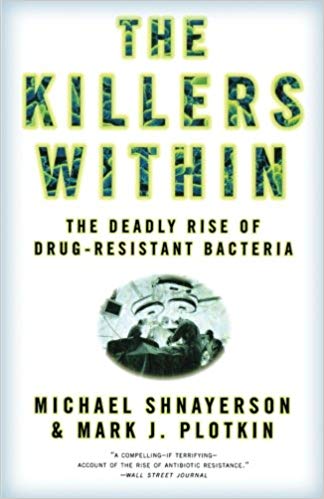
>The killers within: The deadly Rise of Drug-resistant Bacteria.
https://www.amazon.co.uk/Killers-Within-Deadly-Drug-Resistant-Bacteria/d...
Michael Shnayerson, Mark Plotkin, Published 2002.
A battle is taking place on the frontiers of medicine between rapidly evolving bacteria and the doctors struggling to outwit them. "The Killers Within" tells this horror story that just happens to be true. Google Books
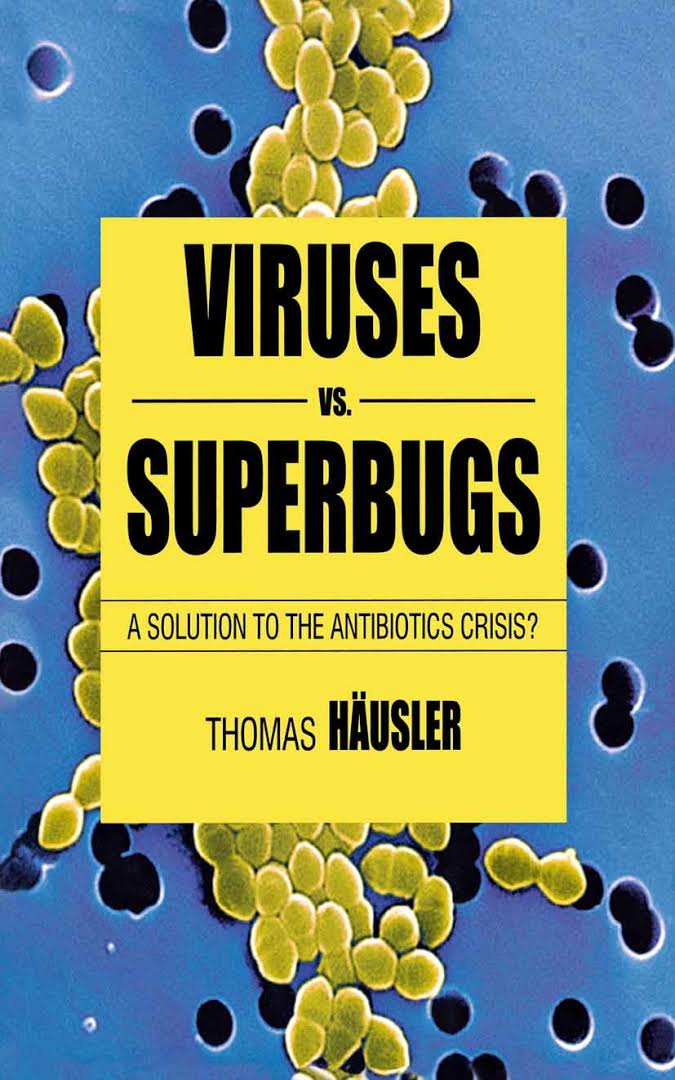
>Viruses vs. Superbugs: A solution to the Antibiotics Crisis?
https://www.amazon.co.uk/Viruses-vs-Superbugs-Antibiotics-Macmillan/dp/0...
Thomas Hausler. In the US alone some 90,000 people die from superbugs--bacteria that have grown immune to antibiotics. Officials agree that this problem will only get worse with time and new alternatives must be found. ...Google Books. Author: Thomas Häusler. Copyright date: 2006
>Herbal Antivirals: Natural Remedies for Emerging & Resistant Viral Infections
https://www.amazon.com/Herbal-Antivirals-Remedies-Resistant-Infections/d...
September 24, 2013, Take control of your health with herbal antivirals. As traditional medications become less effective against today’s potent and aggressive viruses, natural alternatives are proving capable of fighting off many common viral threats.
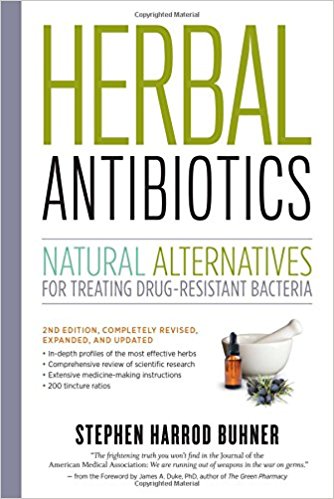
>Herbal Antibiotics, 2nd Edition: Natural Alternatives for Treating Drug-resistant Bacteria.
https://www.amazon.com/Herbal-Antibiotics-2nd-Alternatives-Drug-resistan...
Stephen Harrod Buhner. With antibiotic-resistant infections on the rise, herbal remedies present a naturally effective alternative to standard antibiotics. Herbal expert Stephen Harrod Buhner explains the roots of antibiotic resistance, explores the value of herbal treatments, and provides in-depth profiles of 30 valuable plants, noting the proper dosages, potential side effects, and contraindications of each.
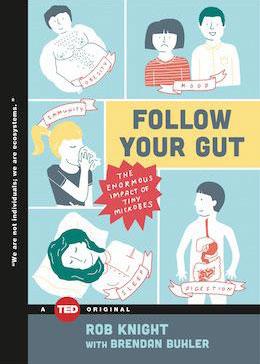
>Follow Your Gut - the enormous impact of tiny microbes
https://www.amazon.com/Follow-Your-Gut-Enormous-Microbes/dp/1442375884
Rob Knight, microbial ecologist, is a pioneer in studying human microbes, the community of tiny single-cell organisms living inside our bodies that have a huge — and largely unexplored — role in our health.
“The three pounds of microbes that you carry around with you might be more important than every single gene you carry around in your genome,”
TED Books (2015)
Visit our video page to view Rob Knight video "How Microbes Make Us Who We Are">
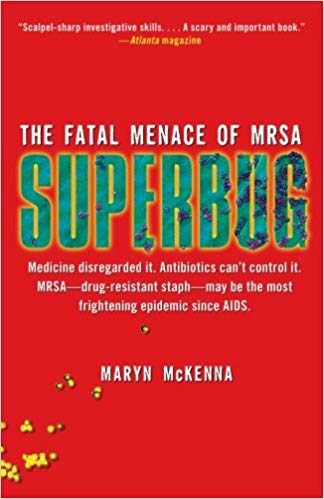
> The Fatal Menace of MRSA SUPERBUG
https://www.amazon.co.uk/Superbug-Fatal-Menace-Maryn-McKenna/dp/1416557288
Mary McKenna, 2010. LURKING in our homes, hospitals, schools, and farms is a terrifying pathogen that is evolving faster than the medical community can track it or drug developers can create antibiotics to quell it. That pathogen is MRSA—methicillin-resistant Staphyloccocus aureus—and Superbug is the first book to tell the story of its shocking spread and the alarming danger it poses to us all.
Doctors long thought that MRSA was confined to hospitals and clinics, infecting almost exclusively those who were either already ill or old. But through remarkable reporting, including hundreds of interviews with the leading researchers and doctors tracking the deadly bacterium, acclaimed science journalist Maryn McKenna reveals the hidden history of MRSA’s relentless advance—how it has overwhelmed hospitals, assaulted families, and infiltrated agriculture and livestock, moving inexorably into the food chain. Taking readers into the medical centers where frustrated physicians must discard drug after drug as they struggle to keep patients alive, she discloses an explosion of cases that demonstrate how MRSA is growing more virulent, while evolving resistance to antibiotics with astonishing speed. It may infect us at any time, no matter how healthy we are; it is carried by a stunning number of our household pets; and it has been detected in food animals from cows to chickens to pigs.
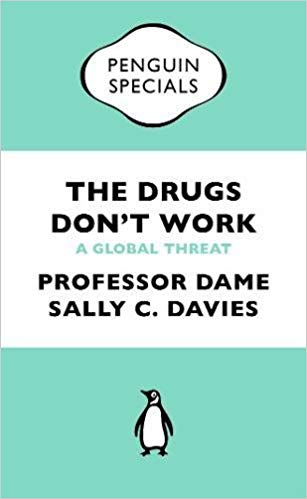
>The Drugs Don’t Work: A Global Threat.
https://www.penguin.co.uk/books/256685/the-drugs-don-t-work/978024196919...
2013. A Penguin Special by Professor Dame Sally Davies, the Chief Medical Officer for England.
“If we fail to act, we are looking at an almost unthinkable scenario where antibiotics no longer work and we are cast back into the dark ages of medicine where treatable infections and injuries will kill once again .” (David Cameron, Prime Minister). Antibiotics add, on average, twenty years to our lives.
For over seventy years, since the manufacture of penicillin in 1943, we have survived extraordinary operations and life-threatening infections. We are so familiar with these wonder drugs that we take them for granted. The truth is that we have been abusing them: as patients, as doctors, as travellers, in our food. No new class of antibacterial has been discovered for twenty six years and the bugs are fighting back. If we do not take responsibility now, in a few decades we may start dying from the most commonplace of operations and ailments that can today be treated easily
